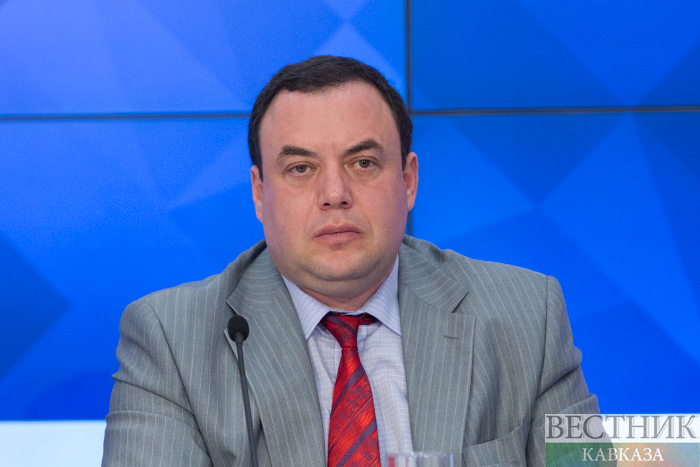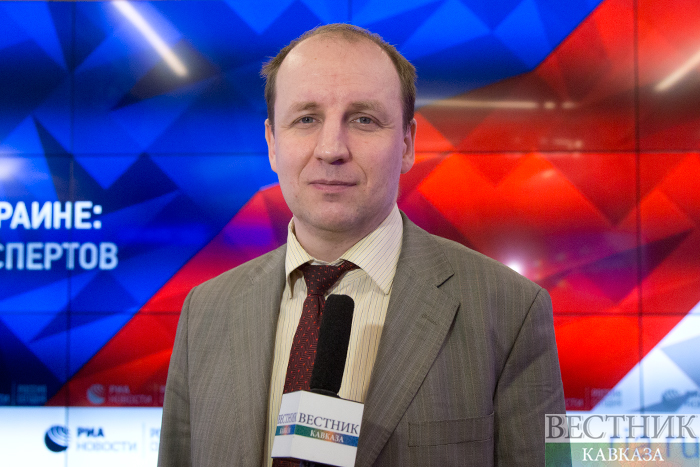Yesterday, a report was presented in Moscow on the manifestations of intolerance in Russia in the first half of 2019, and recommendations to prevent them were provided to government bodies and civil society institutions.
A member of two Councils under the President of the Russian Federation - for Civil Society and Human Rights and for Interethnic Relations, Alexander Brod, noted that despite there was no sharp surge in extremist and terrorist activity last year, sociologists noted a slight increase in nationalist sentiment: "If we talk about the results of social surveys conducted in the first six months of this year, they recorded a decrease in ethnophobic attitudes.We cite a number of studies, including by Levada Center and the Federal National Agency for Nationality Affairs, but a new survey was not included in this review because it was conducted in August this year, when Levada Center recorded that almost three quarters of Russia's residents - 72% - believe that the Russian authorities should limit the influx of foreign citizens. This is a significant upsurge of anxiety among Russians towards migrants, although migration is not some kind of evil - it is a necessary process that makes up for demographic failures and the labor market. But these processes should be properly regulated: migration should be targeted, migrants should be trained in the countries where they come from. We have repeatedly said that in the territory of Russian diplomatic missions, cultural centers, training should also be done in terms of language, familiarization with Russian legislation, and migrants should be distributed to those regions where their efforts are needed. Xenophobia, radical nationalism, radical Islam pose a threat to any society, including Russian society, given its multinational composition. Therefore, we need to be aware of these challenges and do everything to prevent them."

Alexander Brod admitted that Russian negativity has been redirected to external threats in recent years - Ukraine, ISIS (banned in Russia), the West with its sanctions; the return of Crimea played a large role in uniting the Russians, but now these topics do not have the same impact as before: "Negativism is returning and focusing on the country's internal problems: the painful and poorly understood pension reform, rising prices for essential goods, utilities, a drop in income, planned job cuts in various spheres. The pendulum may swing, causing an increase in negativity towards migrants, national minorities, the use of nationalist rhetoric in politics. and accordingly, it an increase in incidents is possible."
However, the human rights activist emphasized that there has been positive trend in the first half of the year: "The number of victims of violence in the North Caucasus has decreased. Countering extremism in the first half of the year remained one of the most important state priorities. Partial decriminalization of article 282 of the Criminal Code of the Russian Federation 'Inciting hatred or enmity and humiliating the dignity' has become an important trend in state policy. On January 7, these changes entered into force, which was made possible thanks to effective feedback, initiated by civil society, human rights defenders, experts, and cultural figures. During the first half of the year, many of the convictions imposed on this article regarding reposts on the Internet were reviewed, and citizens who received prison sentences were released. We propose paying special attention to the Internet, social networks, involving network activists, journalists, bloggers, public opinion leaders in projects related to countering extremism and xenophobia, as well as actively involving representatives of the scientific and expert community in projects related to risk prevention, peacekeeping and mediation activities."

Member of the Russian Presidential Council on Interethnic Relations Bogdan Bezpalko expressed opinion that nationalism as a universal ideology can be combined with any social protests: "With protests related to the environment, with the deterioration of the social status of citizens, with some kind of military campaign, religious expectations or religious beliefs. People who belong to the destructive cults and sects prohibited on the territory of our country may engage. All this can create a certain protest base that can violate the integrity of our country. Each segment of this base will have its own specific xenophobia, its own specific ideology, which will include a division into friends and foes."
According to the expert, many problems are still not evident, because their development require a long period: "What we have seen in Ukraine since 2014 was laid down in the Ukrainian project initially. In Soviet times, this conflict was leveled by the power of the Soviet state, the power of the Communist Party, by the lack of borders that have now become state. But in 1991, when it was decided to create an independent state, when virtually all elites were oriented towards creating a unitary state, the one with a titular ethnic group and everyone else who should assimilate or obey this ideology. The conflict in Donbas and the one which was prevented in Crimea were predetermined in advance. Therefore, the primary task of intellectuals, scientists, sociologists and journalists is to notice, monitor, describe and warn society about possible conflict zones."






